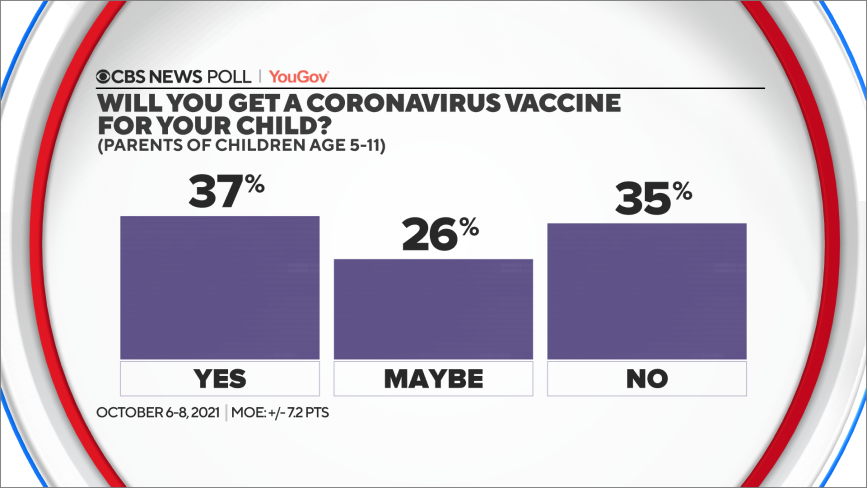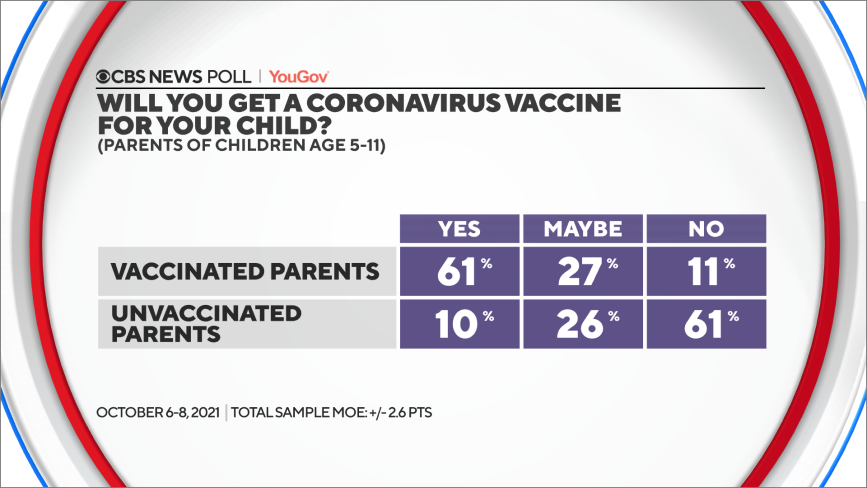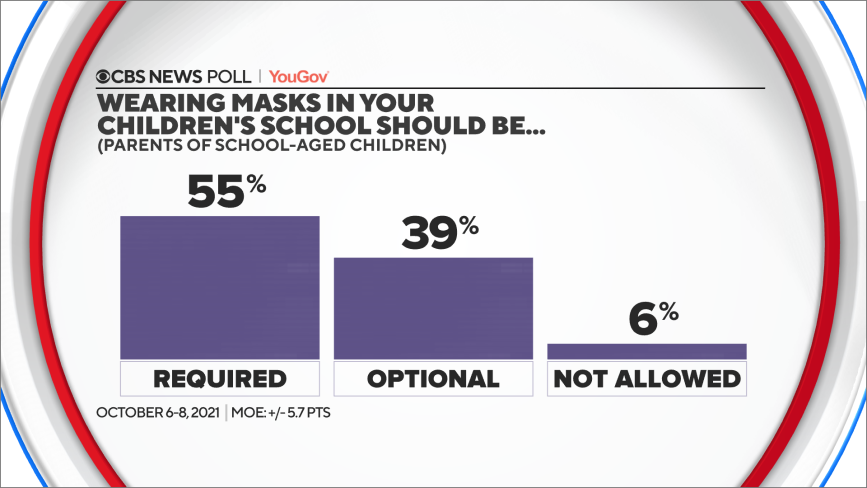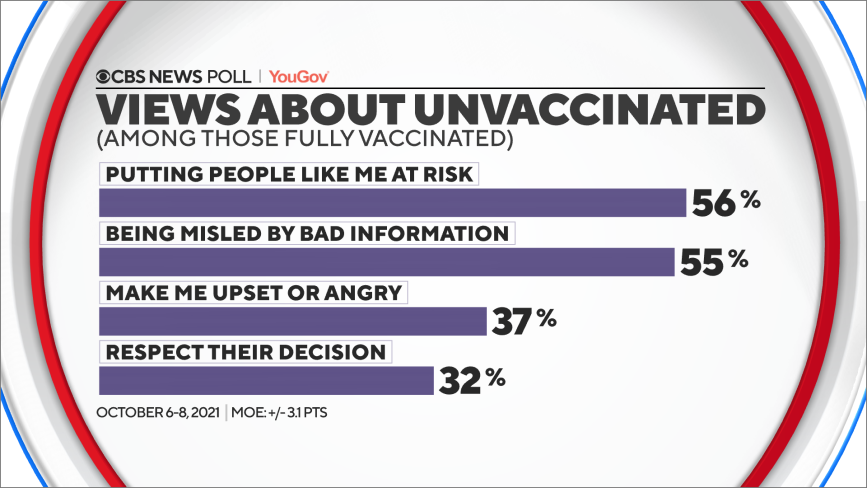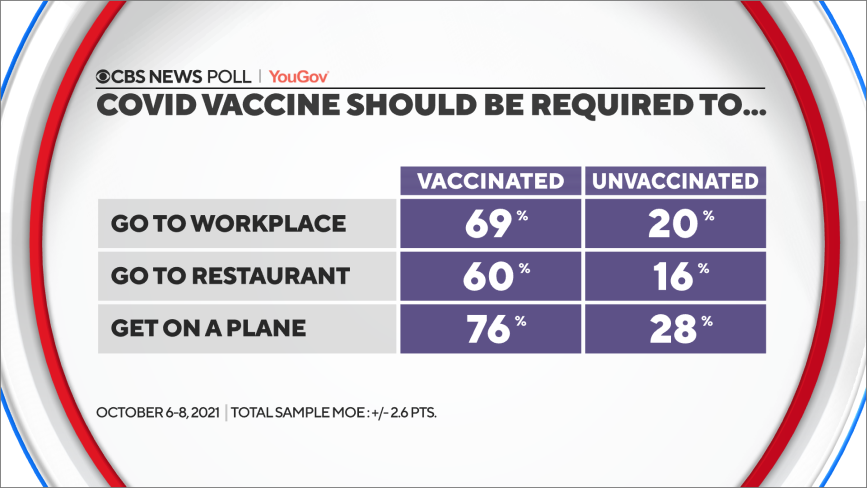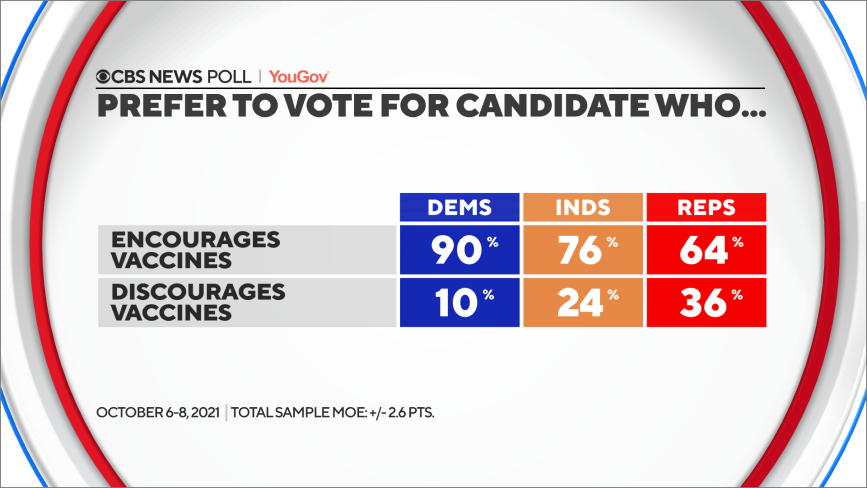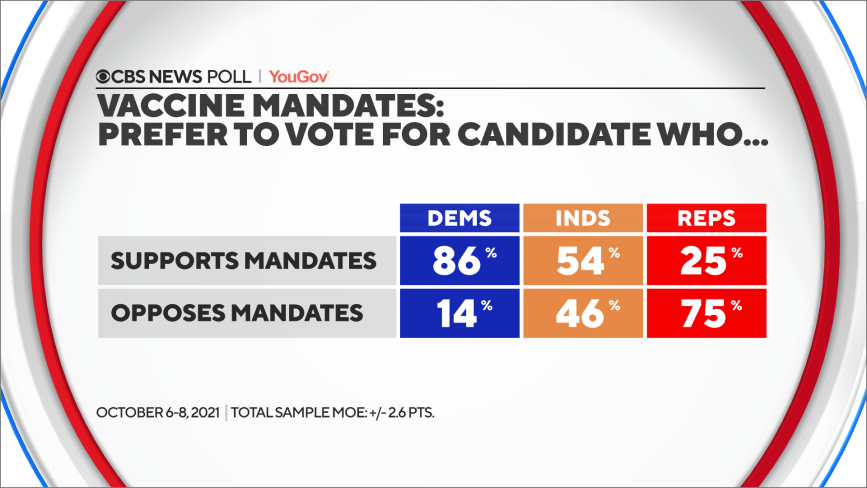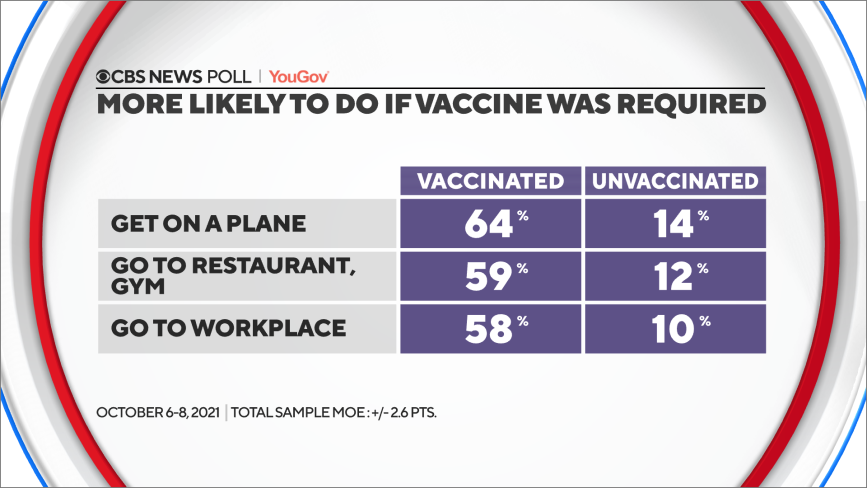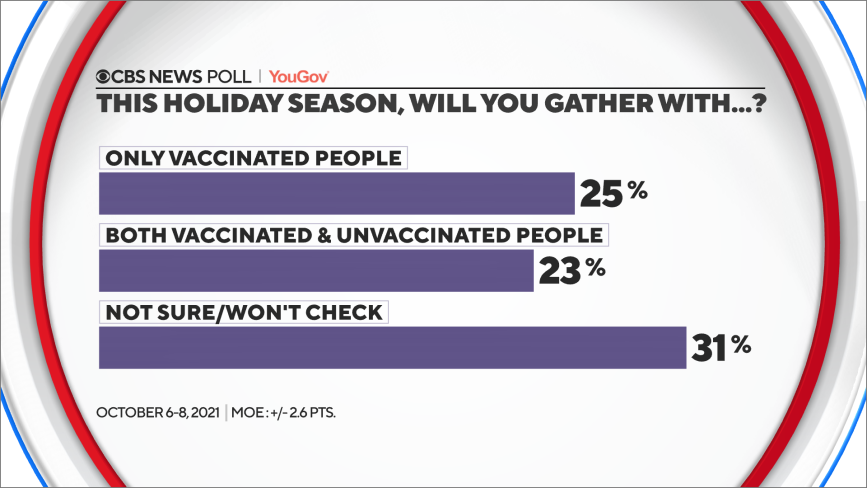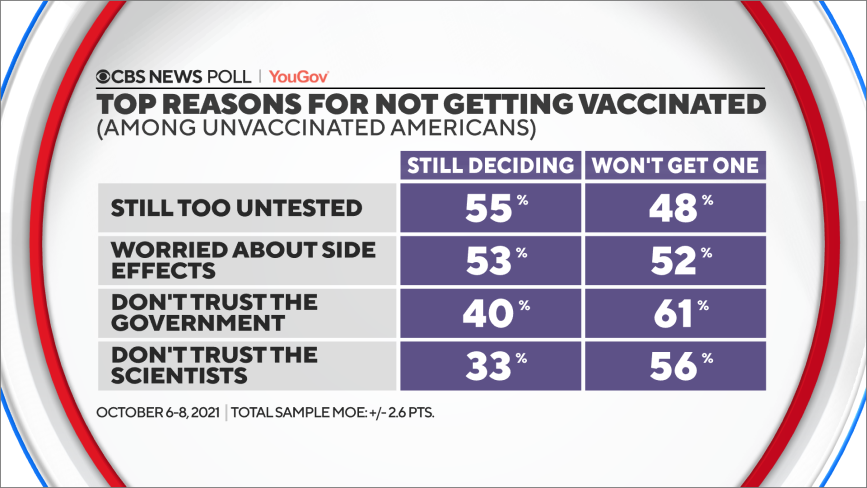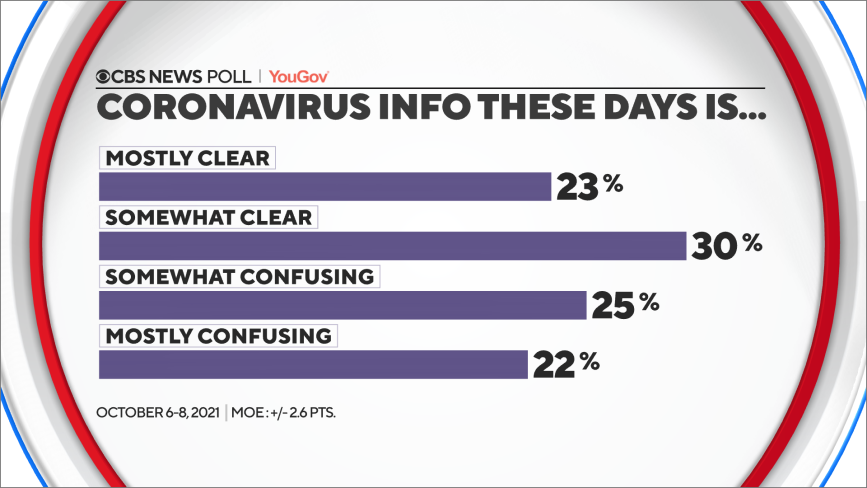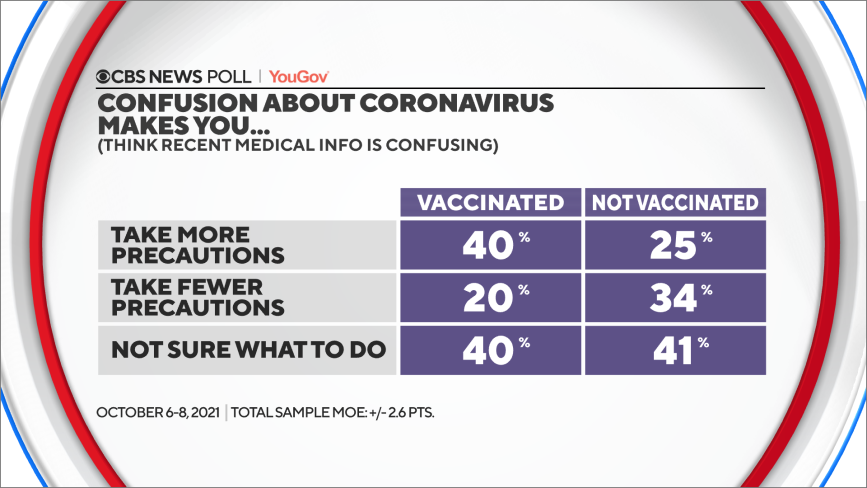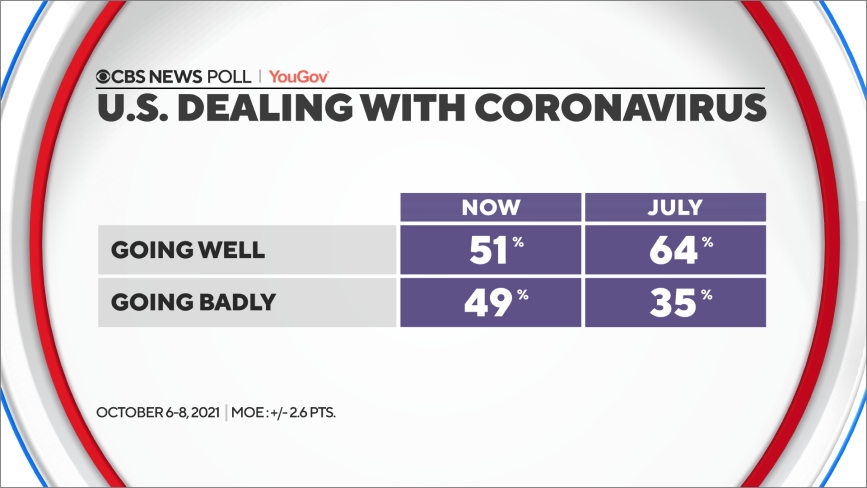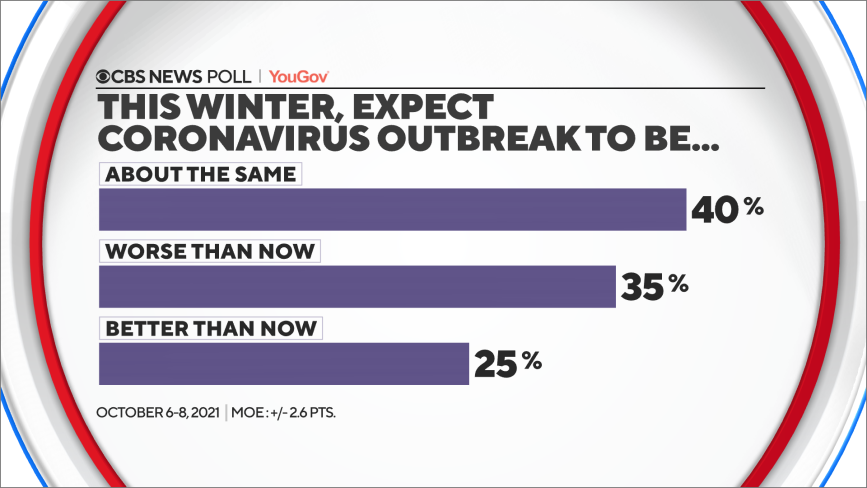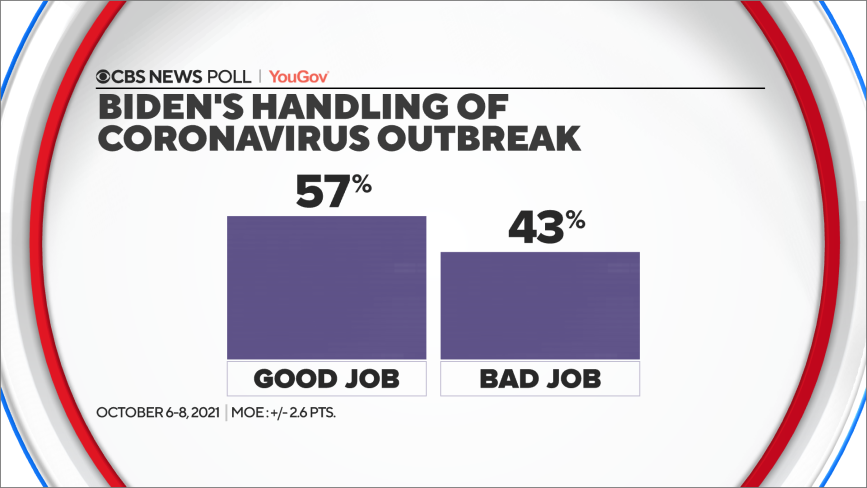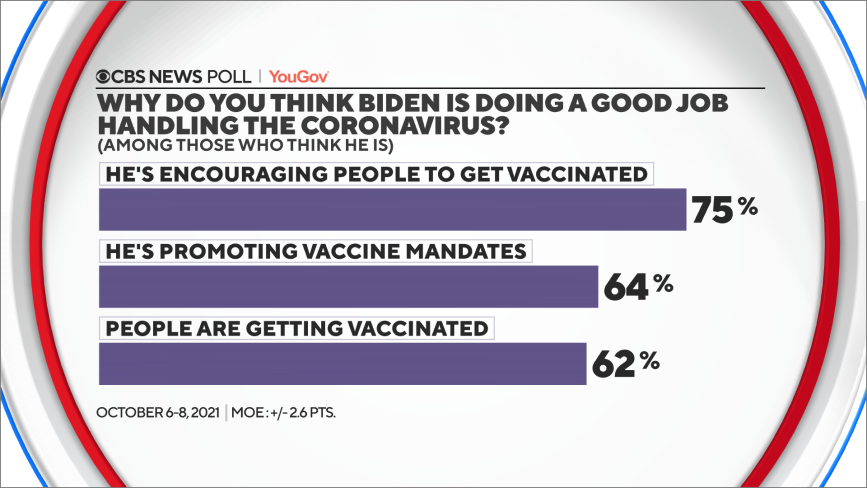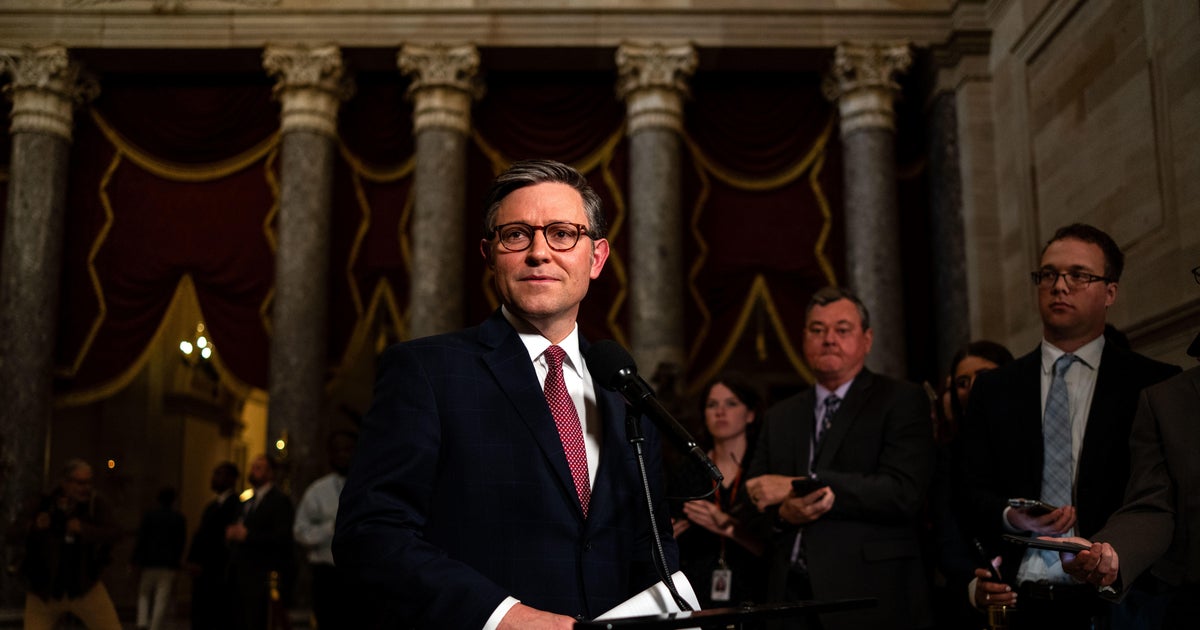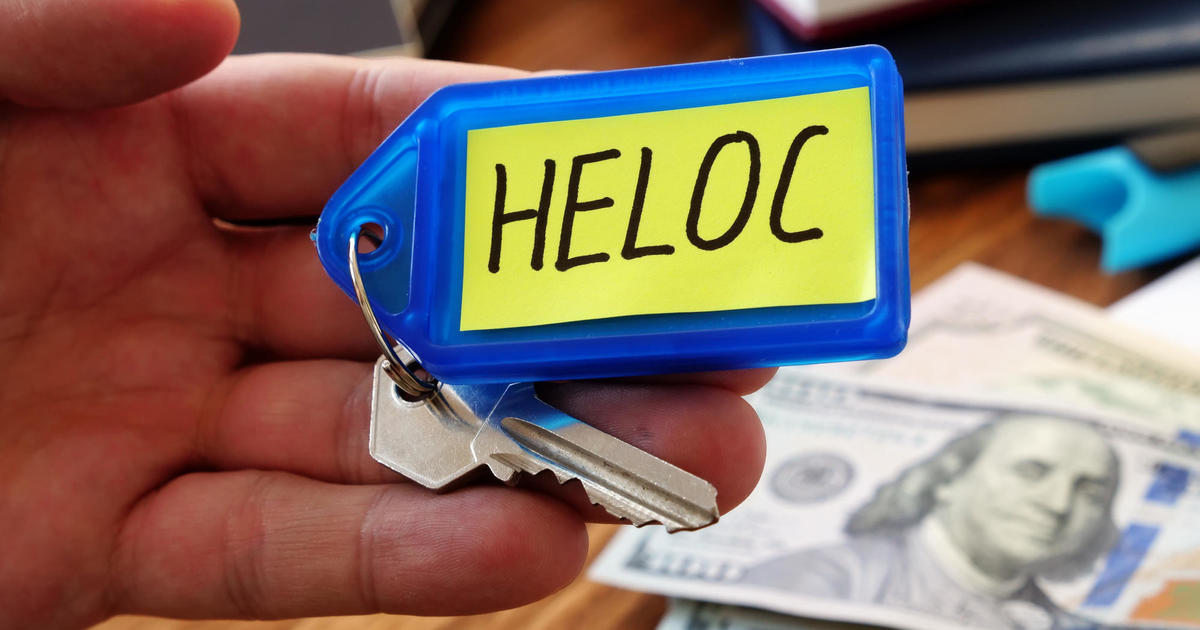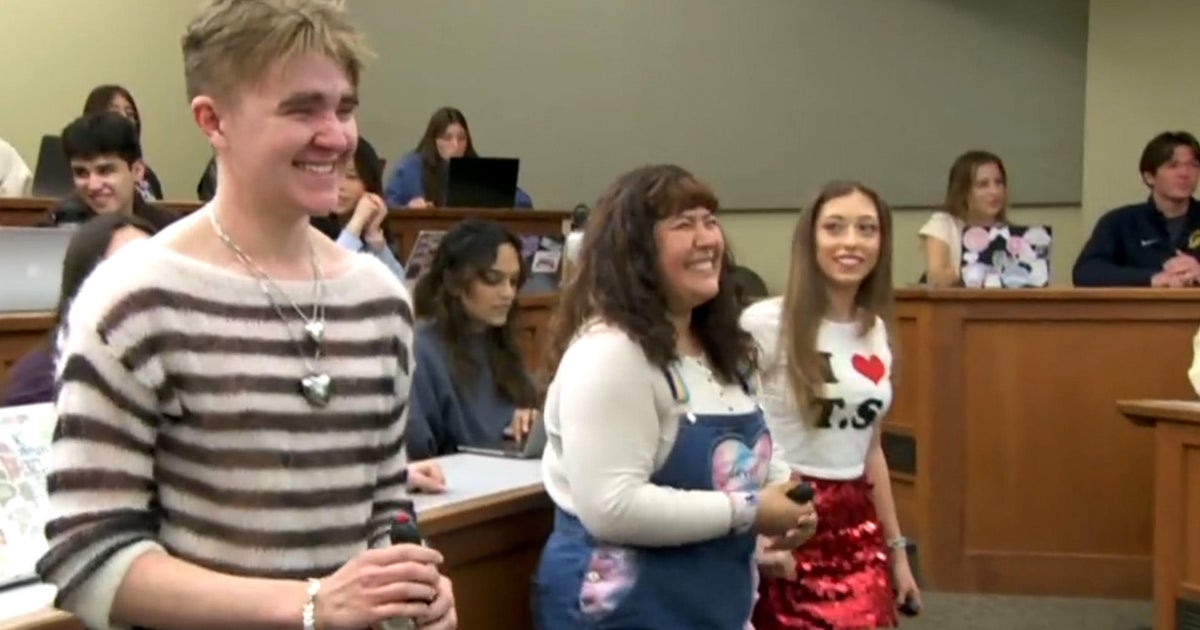CBS News poll: Will parents get their younger kids vaccinated?
For the majority of Americans still concerned about the pandemic as winter approaches, uncertainties remain, because even as cases have started to come down, more suspect the outbreak will get worse than better in the coming months. For parents of younger children, the season may bring a decision on whether to get their kids vaccinated when and if that shot is approved, and we can start to see the context of that public health question forming already.
At the moment there are many parents saying they will get their children vaccinated, but nearly as many saying they won't, with plenty of "maybes" in between. As you might expect, there's a strong connection here between this stance and whether the parent is vaccinated, or not.
These patterns, asking people about a not-yet-widely-available shot, aren't entirely unlike what we saw in early 2021 regarding adults and the vaccine. At the time, there were those eager to get it, and a lot of maybes who eventually did, but the staunch holdouts were there, and have remained.
And there's some partisan difference in this, too, with parents who are Democrats more likely than Republicans to say yes, which also echoes some of the adult patterns we've long tracked.
Another preventive measure for kids — requiring masks in school — does find favor with most parents amid recent controversies and differing state policies. Parents who are themselves vaccinated are more likely to want masks required, continuing a pattern we've seen throughout the pandemic where concern about the virus and risks connects with a broad range of support for preventative measures and behaviors, including getting oneself vaccinated.
Among the minority who feel masks should not be required, most give the reason that they feel it a matter of personal choice, echoing the sentiment many opponents have been using. About half pick the view that forcing children to wear masks for a long time is cruel, and four in 10 say children cannot learn effectively with them.
Then, there are decisions Americans might need to make about where to go, how to travel, and how to get to their destination. We continue to see large differences by vaccination status. The vaccinated strongly favor mandates and proof of vaccines, and most would themselves be more comfortable going to places and travelling if those requirements were in place. The remaining unvaccinated not only oppose those measures, but largely aren't concerned about the virus to begin with.
The vaccinated also voice frustration with the unvaccinated. When asked to pick ways to describe the unvaccinated, the fully vaccinated often choose "they're putting people like me and my family at risk" and "they're being misled" as descriptors.
And those who have gotten a shot feel very differently about whether requirements ought to be in place to do things.
This debate plays out in politics and campaigns too — more people want their candidates to encourage people to get vaccinated and support mandates. Most Republicans do want a candidate who encourages vaccination (and a majority of Republicans are themselves vaccinated) — but at the same time, most Republicans don't want a candidate who supports mandates for it.
And in things that could impact the economy as we head into travel season, the vaccinated and their preferences are a strong economic force numerically. Many of the vaccinated would feel more comfortable going on an airplane or to a workplace or a restaurant if they knew it required everyone to be vaccinated.
Looking ahead to the holidays, just over a quarter will be visiting friends and family more this year, but for most Americans -- vaccinated or not -- it will be about the same as last year. Most figure they'll either be gathering with a mix of both vaccinated and unvaccinated people or will not be checking on others' vaccine status. A quarter plan to restrict themselves to gathering with only the vaccinated.
More immediately, most Americans think children who go trick-or treating this year will be safe.
Though the percentage of vaccinated Americans continues to creep upwards, as the number of Americans taking a "wait and see" approach diminishes, those who are firmly in the "no" camp have barely budged.
Among the unvaccinated, the few who are still making up their minds give different reasons than those who have firmly decided against the vaccine. Those who are still deciding cite worry about the side effects or that it's too untested, as their top reasons for not getting a vaccine.
Most who have no plans to get a vaccine are also worried about the side effects, but more of them say distrust of the government, as well as of the scientists and companies who make the vaccines, are their top reasons.
There are also some expressed political sentiments among some of those unwilling to get unvaccinated (as opposed to those just unsure): 40% of them say they are also making a statement about personal freedom, and 36% say that they are taking a stand against the Biden administration.
In looking for guidance about how to manage coronavirus risks, about half of Americans feel the information they're hearing from medical professionals and public health agencies has been confusing, and unvaccinated Americans are especially apt to claim this.
Those who find the information confusing are responding in different ways. The vaccinated are more likely than the unvaccinated to say this confusion generally makes them take more precautions, while the unvaccinated are relatively more likely to say it makes them take fewer precautions. Many among each group say they are just not sure what to do.
Overall, looking ahead to the winter, just over a quarter think the outbreak will get better. More think it will either get worse or stay about the same.
Assessments of how things are going for the U.S. in its efforts to deal with the coronavirus outbreak have also declined since the summer. Just over half of Americans now think things are going well.
The drop is largely seen among Republicans and independents. Back in July, two out of three Americans said things were going well, including majorities across the partisan spectrum. Now, once again, we see familiar partisan divisions, with Democrats largely seeing things as going well, Republicans seeing things as going badly, and independents evenly divided.
Mr. Biden's handling of the coronavirus remains at majority approval, even as his overall approval is split and has stabilized after taking a sharp drop after the events in Afghanistan. It's underpinned today by those positive marks for handling the outbreak, as well as for vaccine distribution.
But in that you can see more of the nation's starkly different views of the same situation. When asked specifically why people thought he was doing a good job on the outbreak, top answers were that he was encouraging people to get vaccinated and promoting mandates. For those who think he's doing a bad job, their top answers included that he was promoting mandates.
At the same time, his overall ratings are weighed down by negative evaluations for the economy, and low marks on immigration and Afghanistan. Among Democrats, he's come back up from lows from just after the Afghanistan withdrawal, but he hasn't rebounded with independents, while whatever small measure of Republican approval he once had early in his term has since largely eroded.
This CBS News/YouGov survey was conducted with a nationally representative sample of 2,054 U.S. adult residents interviewed between October 6-8, 2021. This sample was weighted according to gender, age, race, and education based on the U.S. Census American Community Survey, and the U.S. Census Current Population Survey, as well as 2020 presidential vote. The margin of error is ±2.6 points.
